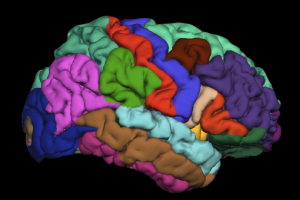一、项目背景
电子工程,是电气工程的一个子类,是面向电子领域的工程学。在今天其研究对象已经超出了电子领域,电子工程技术不仅仅被应用到航空航天发射领域、道路施工建设领域,还被广泛应用于智能化一体设备和电气制造等领域。电子工程的出现和快速发展,是时代发展的重要表现,更是新时代到来的产物,到目前为止,电子工程技术与人类的生产生活已经密不可分,人们也越来越痴迷于在电子科学领域的不断探索和前进。
本研究课题隶属于是哈佛大学工程与应用科学学院Harvard School of Engineering and Applied Sciences(HSEAS)。课题组主要致力于电路、半导体器件以及电气工程等领域最前沿科学技术的研究。
二、项目说明
面向对象:欲申请美国名校电子工程、电子信息、电气工程等相关专业的大学生、研究生以及学有余力的高中生;
软性背景:电子工程、电气工程、物理、数学、计算机技术、机电一体化;
科研导师:哈佛大学SEAS资深博士后研究员;多个SCI期刊审稿人。
科研形式:实地科研或者远程线上科研,导师授课+练习实战结合,完成课题学习、选题、研究实战及报告撰写。
phase 1:课题基础知识学习,课程+文献阅读
phase 2:确定研究课题,讨论研究思路以及研究进展
phase 3:汇报答辩+报告撰写
科研周期:实地科研:寒暑假期间,前往哈佛大学校内,每期时长为4周(针对假期不足4周的同学,可采取实地+远程相结合的方式);
三、项目/研究课题简介
研究课题:电路设计、半导体器件、电气自动化
关键词:电路、半导体器件和电气系统
本项目适合对令人激动且强大的电气工程世界感兴趣并想知道传感器和执行器背后的电子设备如何实际工作的学生。项目结束后,学生可以使用生物工程、计算机科学、人工智能和微电子等领域的知识,设计自己的电气系统。
在项目中,学生学习用于分析电路的电路理论基础和用于理解晶体管电路和其他有用的执行器和传感器(即换能器)的半导体器件的基础知识。基于这两个电气工程核心基础领域的原理,电子电路和物理设备将被建模、分析和应用。本项目中的实验将侧重于模拟电子电路的设计、实现和测量。每个学生将从事一个适当的顶点项目,其中涉及工程设计和定量分析。
四、课题大纲
Techniques that would be conveyed in this program:
- Understand the basic electrical engineering principles and abstractions on which the design of electronic systems is based. These include lumped circuit models, digital circuits, and operational amplifiers.
- Use these engineering abstractions to analyze and design simple electronic circuits.
- Understand the concepts of employing simple models to represent non-linear and active elements-such as the MOSFET-in circuits.
- Employ Boolean algebra to describe the function of logic circuits.
- Design circuits that represent digital logic expressions. Specifically, design a gate-level digital circuit to implement a given Boolean function.
- Understand the state-of-the-art semiconductor fabrication processes, including lithography, deposition of metals and dielectrics, etching, oxidation, implantation, and diffusion of dopants
- Understand the relationship between the mathematical representation of circuit behavior and corresponding real-life effects.
- Build circuits and take measurements of circuit variables using tools such as oscilloscopes, multimeters, and signal generators. Compare the measurements with the behavior predicted by mathematic models and explain the discrepancies.
五、项目收获
◆ 深入学习该领域知识和研究方法,积累科研经历和经验;
◆ 完成学术科研报告或者科研论文;
◆ 优秀学员将获得导师推荐信,助力世界名校申请;
◆ 学术成果有机会在专业国际学术期刊或EI/CPCI国际会议收录发表;
◆ 积累学术领域人脉;
◆ 有机会参加校内的讲座/专家研讨/学术活动等。
相关资料:
Circuits, Semiconductor Devices, and Electrical System






